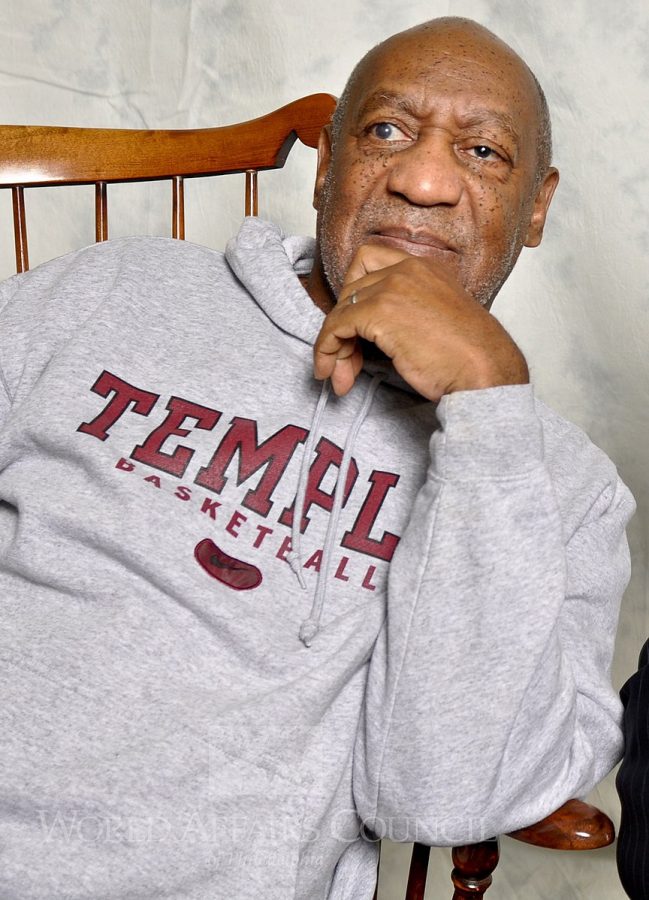A bittersweet victory for women everywhere, but is it enough?
October 2, 2018
Bill Cosby will spend the next three to ten years in prison after being found guilty in the drugging and sexual assault of Andrea Constand at his home 14 years ago. But in the end, no amount of jail time is long enough. It will never be enough while hundreds of thousands of perpetrators walk away with clean hands.
“The day has come, the time has come,” stated Steven O’Neill, the judge who sentenced Cosby.
For the millions of women who have had their lives shattered by sexual abuse, the words echoed in that Pennsylvania courtroom were a bittersweet victory. They created a need for justice for Constand.
“Bill Cosby took my beautiful, healthy young spirit and crushed it. He robbed me of my health and vitality, my open nature and my trust in myself and others,” Constand stated in her open letter to the court.
The suffering she felt at the hands of Cosby is a pain many women know all too well. For the one in six women who will fall victim to an attempted or completed rape, the familiar feeling of trauma, regret and guilt resonates throughout.
During the trial, O’Neill had decided to raise the maximum sentencing from three years to ten years, while also not allowing bail. Cosby must also pay a a $25,000 fine and reimburse the prosecution costs. Labeled by the court as a “sexually violent predator,” he must register for the rest of his life as a sex offender and attend lifetime sex offender counseling.
Cosby’s defense attorney, Joseph Green, tried to sway O’Neill’s opinion by claiming Cosby was too old and nearly blind to serve jail time. He requested house-arrest, but O’Neill followed his duty to impose a just punishment.
Cosby’s sentencing is bittersweet: it is a step in the right direction for finding justice for victims, but it is a gruesome reminder that a majority of sexual abusers will never face jail time or punishment for their irredeemable crimes.
Many perpetrators of rape and sexual assault get off without punishment, especially those with fame, fortune and large platforms. According to the Rape, Abuse and Incest National Network, 99 percent of perpetrators of sexual violence will walk free without ever receiving punishment. If they do receive jail time, we experience cases like Brock Turner, who was released three months into his inadequate six-month sentence.
In cases like Turner’s, where his punishment was disgustingly lenient, the well-being of the perpetrator is considered more than that of the victim. Prison would have had a “severe impact” on Turner, but what about the impact that was left on the victim? According to the Central Minnesota Sexual Assault Center, victims of sexual abuse are three times more likely to suffer from depression, six times more likely to suffer from post-traumatic stress disorder, four times more likely to contemplate suicide and 26 times more likely to abuse drugs. Where is the concern for their well-being?
While Cosby was only convicted for one report of sexual abuse, over 60 women have come forward with their own stories. People ask, “Why did the women not report the crime when it happened? Why are they coming out years later?” The fact of the matter is simple: solidarity matters.
Women do not come out with their stories when they are the only one being vocal. They are scared of repercussions, both verbal and violent. They are aware the chances of their abusers receiving legal punishment is slim.
They are terrified of being pegged a liar, money-hungry or attention-seeking. They do not want to be told if they acted differently, dressed differently or existed differently, it never would have happened. They do not want to be made into a villain.
With the momentum of the #MeToo movement, victims of Cosby’s crimes came forward years later because they finally felt safe. They finally felt they had a platform to tell their truth. For once, they felt like their voices would be heard. For every person accusing them of placing false-blame, there are a hundred people who support their courage.
The attitude toward sexual assault in this country is beginning to change after hundreds of years of silence. Women are speaking out against the injustice they faced at the hands of those stronger than them, and we must listen.




















